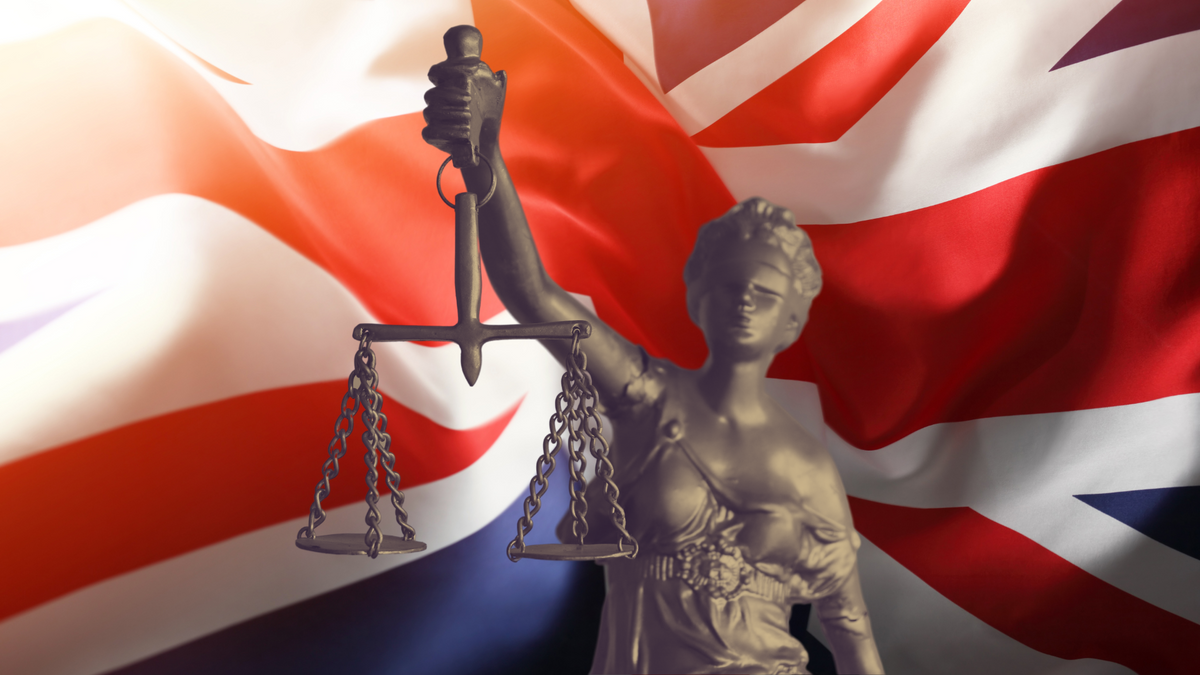UK Decides Against Compelled Pronouns for Violent Offenders
Updated guide for judges says women won't be compelled to call male attackers “she” in cases of rape and domestic violence.

The Equal Treatment Bench Book (ETBB) is a guide for judges on the fair treatment of people involved in court cases in the UK. On 14 July a revised edition was released that makes clear that women giving evidence against male defendants cannot always be compelled to use the preferred pronouns of their alleged attacker.
The 571-page ETBB covers everything from how to talk to victims of modern slavery, to what allowances should be made for witnesses who suffer from panic disorder. It also features a 21-page section on the treatment of trans people.
Legal Feminist, a collective of professionals concerned with feminism and the law, claimed that a previous edition of the guide, published in 2020, was being misinterpreted by some judges as requiring them to compel witnesses to use the preferred pronouns of defendants who identify as transgender.
They point to one well-publicized 2018 case, in which Maria MacLachlan was instructed by a judge to use the preferred pronouns of one of her trans-identified attackers
In August 2021, Legal Feminist sent a letter to the Lord Chief Justice, laying out their concerns about the treatment of witnesses who give evidence in sexual and domestic violence cases. The letter, along with criticism from policy analysts and others on social media, seem to have had an effect on the editorial board of the ETBB.
Despite these welcome amendments, however, the drafters ignored other concerns including questions surrounding the identity of the people or groups that influenced the drafting of Chapter 12 on trans people.
Stonewall says: “the language we use is hugely significant”
According to feminist activist Maureen O’Hara, “The ETBB has advised using preferred pronouns for several years, and previously included no exceptions. For the first time the guidance now makes explicit exceptions for those giving evidence about their experiences of sexual and domestic violence.”
LGBT pressure group Stonewall have so far not issued a statement on the updated ETBB, though they were unsurprisingly pleased with the previous edition. They are quoted in the Law Gazette article as saying: “The language we use is hugely significant, especially when it comes to trans communities who face high levels of harassment and abuse in their daily lives. Using a trans person’s correct name and pronoun is as important as it is for anyone else. This helps ensure trans people are respected and accepted for who they are.”
What the text says now
In general, the guide is heavily influenced by gender ideology. However, feminists are pleased that witnesses giving evidence about traumatic events like sexual violence will not be forced to deny their own perception of reality. It also means that women giving evidence of domestic abuse as part of family court cases will not have to pretend that their former partners are women.
In Chapter 12, paragraph 26, the guidelines now contain this text: “There may be situations where the rights of a witness to refer to a trans person by pronouns matching their gender assigned at birth, or to otherwise reveal a person’s trans status, clash with the trans person’s right to privacy.”
It says that a decision on how to refer to the defendant should be made based on factors that show extreme consideration on the effect it will have on the trans person, such as whether or not they are “out,” whether being outed would cause them any issues, whether they have official recognition as their preferred sex (GRA certificate), as well as their willingness to cooperate if they are being “misgendered.”
Still using ideological vocabulary, mischaracterizing gender critics
However, this section also states that “a victim of domestic abuse or sexual violence at the hands of a trans person may understandably describe the alleged perpetrator and use pronouns consistent with their gender assigned at birth because that is in accordance with the victim’s experience and perception of the events. Artificial steps such as requiring a victim to modify his/her language to disguise this risks interfering with his/her ability to give evidence of a traumatic event.”
It concludes: “There will be occasions when, after these and any other relevant factors have been considered, the interests of justice require that a witness or party may refer to the trans person using their former pronouns or name.”
While some celebrated the amendments to the ETBB, others remain highly critical of the guidance overall. Rebecca Bull, co-founder of Sex Matters and editor at Legal Feminist wrote a Twitter thread on what she sees as a “disappointing” revision of the text, noting in particular the use of the term “cisgender” and the mischaracterization of gender critical beliefs, among other issues.
Do you want to bring the "gender madness" to an end? Help us write about it! 4W is able to pay our all-female staff and writers thanks to the generous support of our paid monthly subscribers.
Enter your email below to sign in or become a 4W member and join the conversation.
(Already did this? Try refreshing the page!)





Comments